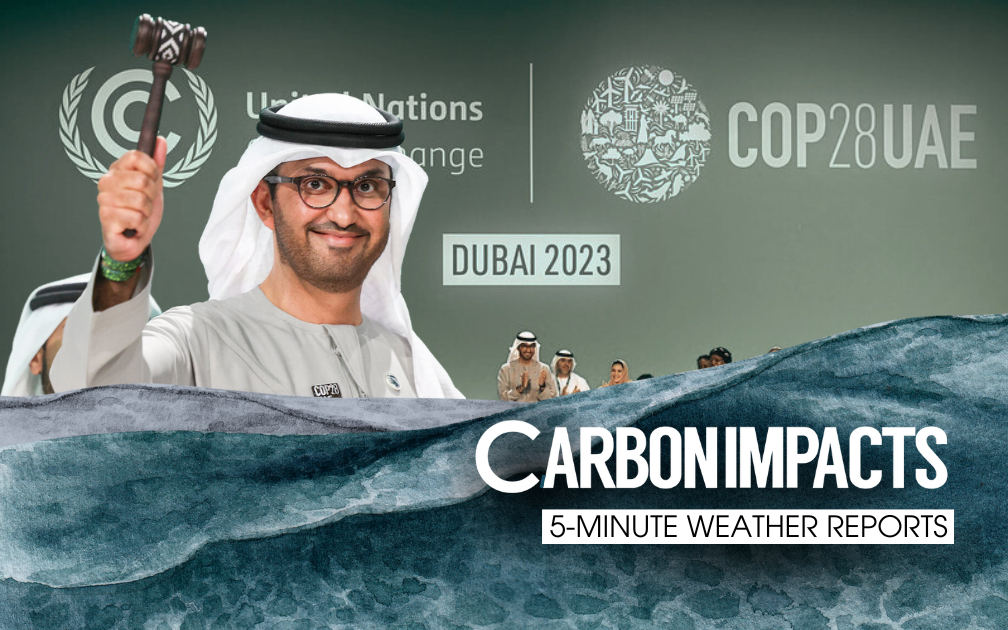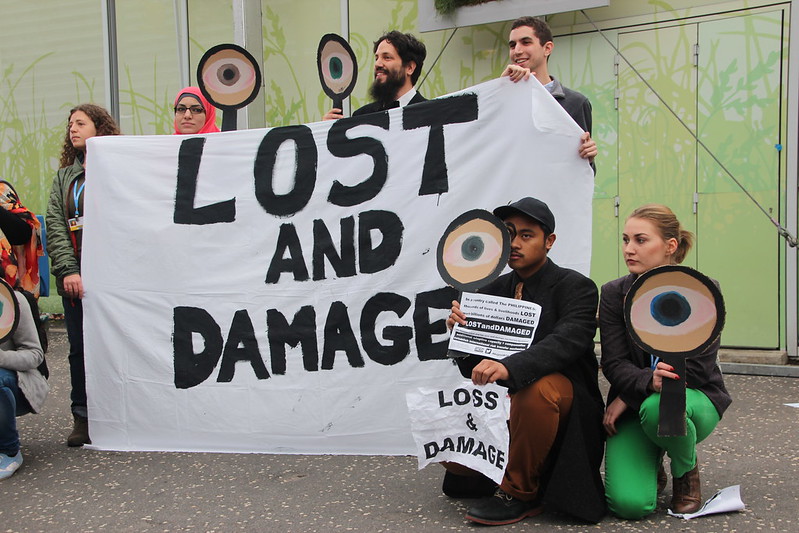Counting the Costs: Unpacking COP28's Loss and Damage Fund | 🎙️ 5-Min Climate-Weather Report
In this episode, we unpack the COP28's groundbreaking decision — establishing a Loss and Damage Fund. As extreme weather events wreak havoc worldwide, vulnerable nations bear the brunt of escalating climate impacts.
By Carbon Impacts / Dec 15, 2023

COP28's Loss and Damage Fund
Today, we delve into a significant outcome of the COP28, the 28th annual United Nations (UN) climate meeting, where governments discuss how to limit and prepare for future climate change. Recently concluded COP began with a historic agreement on a loss and damage fund to help developing countries cope with the effects of climate change.
Could you explain what a loss and damage fund is?
The loss and damage fund is a global financial package designed for the countries facing the cascading effects of climate change. The fund aims to ensure the rescue and rehabilitation of such countries. The loss and damage fund was first announced at COP27 in Sharm el-Sheikh, Egypt, last year. However, it was formalised only at COP 28 when the participating countries agreed on key points.
What are the funding pledges made by the COP28 host and other countries?
15 developed countries and a developing nation - COP28 host UAE have made funding pledges so far. According to the Natural Resources Defence Council that has been tracking financial pledges at COP28, the initial funding is estimated to be around $660 million, out of which the host UAE pledged $100 million, the European Union promised $27.1 million, $17.5 million came from the US, and $10 million from Japan.
Can you explain why this fund was organised?
The term refers to the compensation by rich nations, whose industrial growth led to global warming leading to climate crisis. It was demanded that these nations pay poorer nations, whose carbon footprint is low but are facing the brunt of climate change impacts such as heatwaves, rising sea levels, floods, droughts, and increased cyclogenesis, to name a few.
The fund aims to give financial assistance to such nations to rebuild and be rehabilitated. It is different from climate adaptation funds because loss and damage refer to a situation in which communities can no longer adapt to climatic impacts or prepare for it because the damage has already been done.
How much damage has been caused by industrialisation?
The Industrial Era that started in 1850 disrupted Earth’s natural mechanism of the production and absorption of greenhouse gases. The US, UK and EU are said to be historically responsible for 50% of all emissions. If we bring Russia, Canada, Japan, and Australia into the picture, the figure totals 65%, accounting for two-thirds of all emissions. China, the world’s biggest emitter in the last 15 years, is responsible for 30% of global emissions every year. Compared to all, India is only responsible for 4% of historical emissions.
How much loss and damage is the world facing?
Reportedly, 55 vulnerable countries have suffered losses worth $525 billion due to the climate crisis in the last 20 years. In fact, the number is estimated to reach $580 billion per year by 2030.
According to the IPCC report, losses and damages are going to amplify further as global warming continues to rise. The impacts will be unequally distributed and affect the developing nations the most, in fact, socially and financially weaker sections would be hardest ones to be hit.
How big is the fund and how will it operate?
The World Bank will monitor the loss and damage fund initially, with the source of funds being rich or developed nations as well as some developing countries. However, the scale or the replenishment cycle of the fund remains unclear still, but one thing is clear: the world needs several trillion dollars to deal with the climate crisis.
Thank you for joining us on this journey through COP28 and the efforts to address climate-induced loss and damage. The loss and damage fund, a crucial step toward climate justice, underscores the urgent need for global collaboration in the face of our changing climate.
Global warming has changed the way the world lives, with vulnerable communities being the worst affected.
COP28
